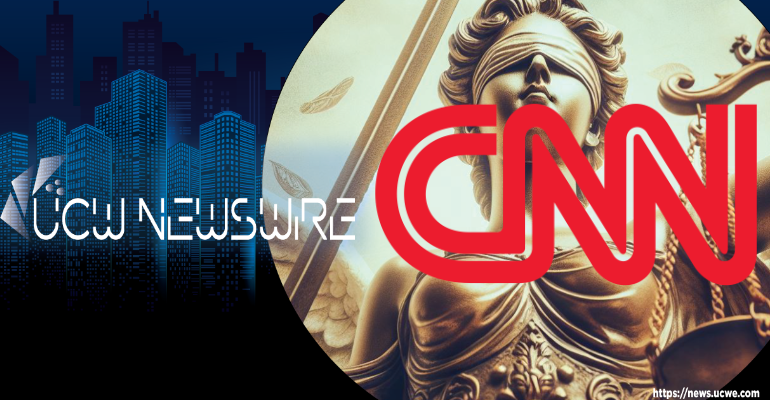CNN Defamation Case Highlights Tensions in Legacy Media
At a challenging moment for legacy media, CNN finds itself in the legal spotlight this week, facing accusations of defamation from Navy veteran Zachary Young. The trial, taking place in

At a challenging moment for legacy media, CNN finds itself in the legal spotlight this week, facing accusations of defamation from Navy veteran Zachary Young. The trial, taking place in Florida’s 14th Judicial Circuit Courts in Panama City, centers on Young’s claim that a 2021 CNN segment destroyed his business and tarnished his reputation.
Young, who had been involved in rescuing endangered Afghans during the U.S. withdrawal from Afghanistan, alleges that CNN wrongly implicated him in a “black market” scheme charging exorbitant fees to evacuate people. The story, aired on Jake Tapper’s program on November 11, 2021, featured Young’s photograph alongside references to such activities, which Young says falsely suggested criminal conduct.
Young’s attorney, Kyle Roche, urged jurors to consider the broader implications of their decision. “You’re going to have an opportunity to send a message to mainstream media,” Roche said during opening arguments. “You’re going to have an opportunity to change an industry.”
Defamation lawsuits against media outlets are rare in the United States due to strong constitutional protections for the press. However, recent high-profile cases, such as Fox News’ $787 million settlement with Dominion Voting Systems and ABC News’ $15 million settlement with former President Donald Trump, have shown that when these cases proceed, they can result in significant financial and reputational damage for media companies.
For CNN, the stakes are high. The network has framed the lawsuit as a “defamation by implication” case, arguing that it did not accuse Young of wrongdoing directly. However, internal communications revealed during the trial could cast doubt on CNN’s handling of the story.
Young’s Defense of His Reputation
Young built his business helping organizations, including Audible, Bloomberg, H.E.R.O. Inc., and CivilFleet Support eV, evacuate people from Afghanistan. According to court documents, he advertised his services to well-funded sponsors, not individual Afghans, and has maintained that his work was entirely legal.
However, the CNN segment in question suggested a broader narrative of exploitation and high fees in Afghan evacuations. To Young, this association implied criminal behavior. “It’s devastating if you’re labeled a criminal all over the world,” he testified.
CNN issued an apology five months after the story aired, acknowledging the misuse of the term “black market” and expressing regret for any implications about Young. Despite the apology, Young proceeded with the lawsuit, claiming that the damage to his reputation and business was irreversible.
CNN’s attorney, David Axelrod, argued that the segment was fair and accurate reporting. He stated that Young’s name wasn’t mentioned until three minutes into the story and that the report didn’t accuse him of illegal acts. Axelrod also emphasized that no witnesses would testify that they perceived Young negatively or avoided hiring him because of the report.
Still, internal communications surfaced during the trial have proven damaging to CNN’s credibility. Messages from the reporter, Alex Marquardt, included profane remarks about Young, while a CNN editor reportedly described one of Marquardt’s stories as “full of holes.”
Broader Implications for the Media
This trial arrives at a pivotal moment for the media industry, where public trust in legacy outlets is waning, and calls for accountability are growing. The case also plays out against a backdrop of political tensions, with Donald Trump preparing for a second term as president and Facebook’s parent company, Meta, announcing changes to its fact-checking policies that many see as Trump-friendly.
The outcome of this trial could serve as a litmus test for media accountability and the legal standards for defamation in the digital age. It also underscores the delicate balance media organizations must maintain between aggressive reporting and ethical responsibility, especially in a polarized and highly scrutinized news environment.
For Zachary Young, the trial represents a fight to restore his reputation. For CNN, it’s a battle to defend its journalistic integrity. For the public, it’s a moment to reflect on the evolving role of media in shaping narratives and the consequences of getting those narratives wrong.
Robert Samms
UCW Newswire

